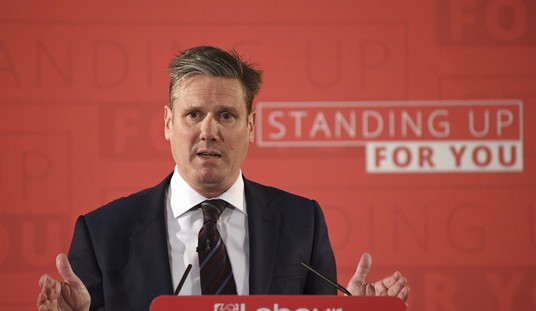After a week of hesitation, the White House now says it is “self-evident” that a “terrorist attack,” and not just a spontaneous reaction from a furious mob, struck the US Consulate in Benghazi,Libya, last week.
Actually, it wasn’t “hesitation.” The White House insisted that the attack on the consulate in Benghazi was a protest that “spun out of control” — and sent UN Ambassador Susan Rice onto a number of Sunday talk shows last weekend to insist on it. They rolled out a false story even while the Libyan President said there was “no doubt” that the attack was premeditated and well organized.
Why did the Obama administration stick with the false story until it fell apart? The Christian Science Monitor answers that question in the following paragraphs:
The characterization is important, because it opens the door to the conclusion that the attack was a preplanned assault, resulting in the deaths of four US diplomats, including the US ambassador to Libya, Christopher Stevens.
The repercussions of declaring that the Benghazi attack was a planned terrorist assault on the United States would be extensive. For starters, it would raise questions about the Obama administration’s precautions in a volatile region and its preparedness for anti-US strikes in an area known to harbor Al Qaeda and other Islamist extremist elements.
Let’s recall the date of this attack. It was the anniversary of the 9/11 attacks, a date which al-Qaeda has repeatedly attempted to exploit again in order to make itself feared. Benghazi is in the eastern part of Libya, where AQ has operated for years, recruiting hundreds of low-level jihadis for the war in Iraq, and who have been able to operate even more openly after the fall of Moammar Qaddafi. That prompts the question of why the Obama administration didn’t take any extra precautions for the Benghazi consulate, especially now that Libya claims to have warned the US a few days before the attack of the deteriorating security environment in Benghazi.
That’s not the only problem that arises with this new admission, either:
More broadly, it could call into question President Obama’s Middle East policy in the wake of the Arab awakening. Some Republican critics are already tarring the policy as too weak and dismissive of the threats that the region’s tumult presents.
Obama pushed Hosni Mubarak out of power in Egypt, and he bombed Qaddafi out of power in Libya. At the time, Obama hailed the Arab Spring movements as harbingers of democracy and justified his intervention in Libya by claiming that the security of its inhabitants was threatened by Qaddafi (which it certainly was). Have these interventions improved matters? More to the point, have they improved US standing and security, and the standing and security of our allies? Not at all; even Obama suggested that Egypt was no longer an ally of the US under its new leadership, causing NBC’s chief foreign correspondent Richard Engel to openly question why we got involved in the Arab Spring at all.
The cover story offered by the White House shows just how badly they miscalculated on the Arab Spring, and the inevitable seizure of power by the Muslim Brotherhood in Egypt and the rise of AQ in eastern Libya, two utterly predictable consequences of Obama’s interventions. It also shows that the Obama administration, from the top down, understood just how bad this story was — and either lied to themselves, lied to us, or a bit of both in order to avoid the consequences of it. That might be the most damaging revelation of all.








Join the conversation as a VIP Member